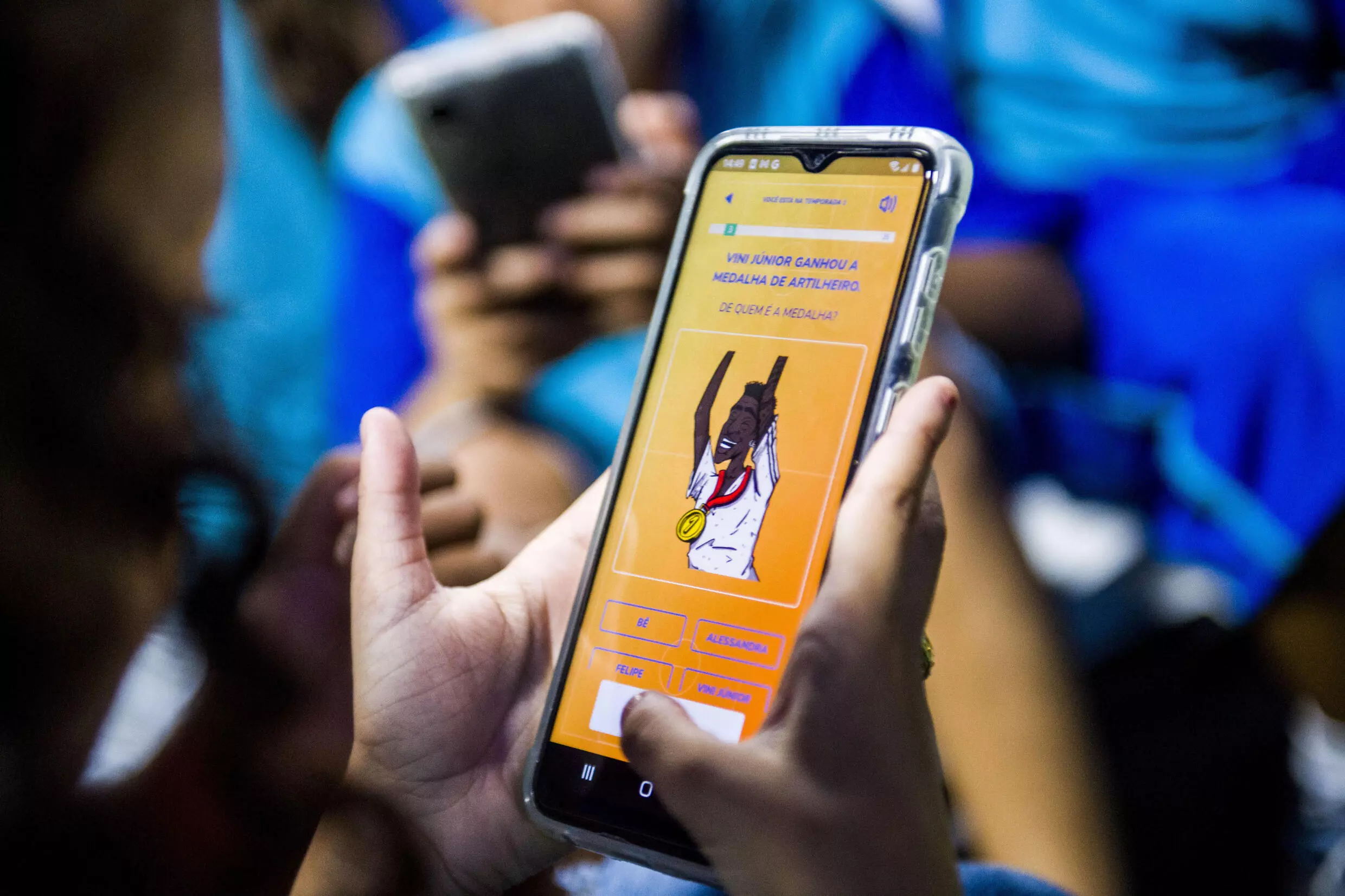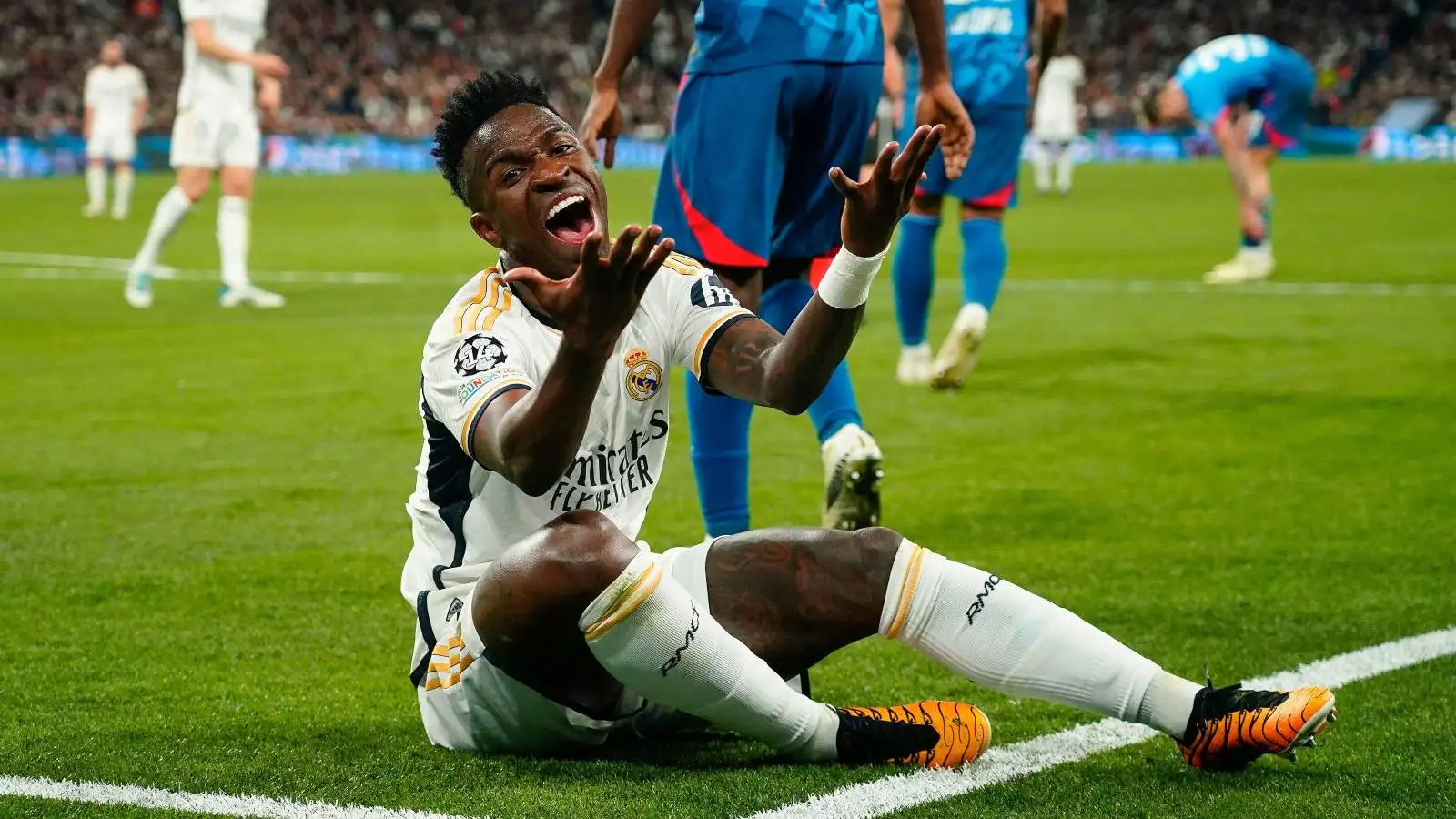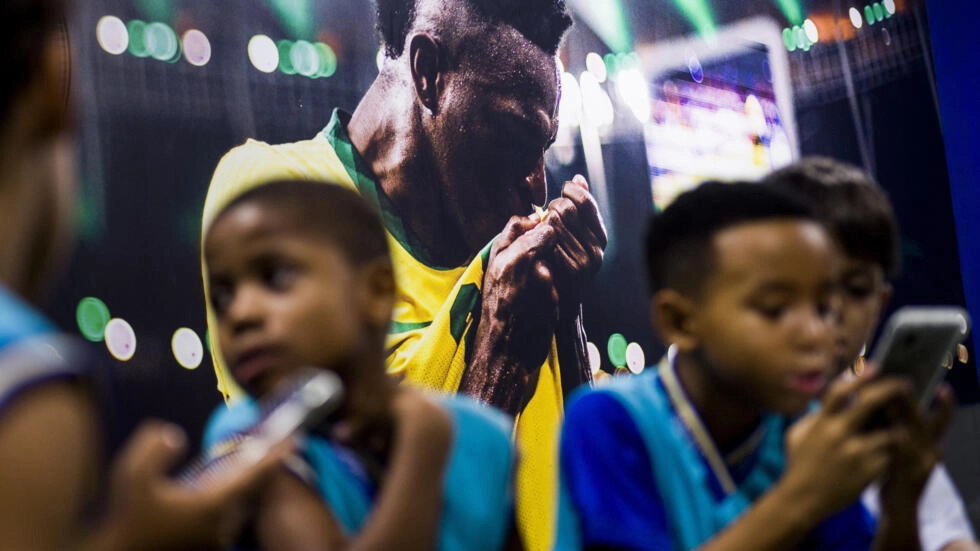In a primary school situated within Brazil’s fervent football culture, students are encouraged to excel academically within classrooms resembling soccer fields, augmented by a virtual avatar inspired by prominent footballer Vinicius Junior, who applauds every accurate response. Seated on cushions patterned with football motifs atop artificial grass flooring, students engage with educational content via tablets and smartphones utilizing an application developed by the Vini Jr Institute, an initiative spearheaded by the Real Madrid athlete aimed at enhancing public education in underprivileged communities.
Eleven-year-old Ana Clara da Silva, speaking to AFP in Sao Goncalo, Vinicius’s hometown on the outskirts of Rio de Janeiro, expressed her preference for learning through the app, citing its gamified approach as conducive to her understanding. Da Silva is enrolled at Visconde de Sepetiba municipal school, one of ten institutions across four Brazilian states benefiting from educational support provided by the institute.

Since its inception in 2021, the project has assisted approximately 4,500 students and 500 educators. With aspirations to expand its reach, the initiative aims to extend its influence to 30 schools by the year’s end. Emphasizing its role as a supplementary tool rather than a replacement for traditional teaching methods, the application assigns each student a personalized account to track their progress as they tackle questions presented in a playful, football-themed manner spanning subjects such as mathematics, Portuguese, and science.
Adopting a gaming framework, the application frames each academic year as a “season,” with individual subjects likened to “matches,” while the avatar “Vinizinho Jr” celebrates correct responses akin to goals.
The power of football

The executive manager of the Vini Jr Institute, Victor Oliveira, conveyed that they harness the influence of football, leveraging its inherent playful essence, to foster educational inspiration among children, as stated to AFP.
Yuri Rodrigues, an 11-year-old participant, articulated, “We implement our acquired knowledge directly through the institute’s application. This facilitates learning as we remain digitally engaged while not being disconnected from our academic pursuits.”
Originally solely financed by Vinicius, the institute now boasts support from various sponsors. It endeavors to address the pervasive issue of racism in a nation where over half the populace identifies as black or of mixed ethnicity. To this end, it has introduced an anti-racism instructional guide and has conducted training sessions on the topic for approximately 80 educators over the past year.
This cause holds particular significance for the Brazilian footballer, who himself has encountered numerous instances of discrimination while in Spain. Ana Clara, an 11-year-old beneficiary, remarked, “He holds immense significance for all of us. His perseverance is commendable, and given his widespread influence, he serves as a champion for our cause.”
In recognition of his philanthropic endeavors, Vinicius was awarded the Socrates Prize for charitable contributions at the annual Ballon d’Or football awards in October. Moreover, last month, the 23-year-old was designated as a UNESCO Goodwill Ambassador, marking only the second time a Brazilian footballer has received this distinction, following Pele.


